The Catalyst Killing - [42]
‘A remarkable story. Was the mystery of this lad Karl ever solved?’
Henry Alfred Lien shrugged.
‘His remains were found a few weeks later. His body was discovered one morning in the middle of the scree where they had searched so many times before, his head crushed. So it’s possible that the fall did kill him, but how it had happened remained a mystery. As long as there was someone alive who remembered Karl, people speculated about murder and gods and devils.’
‘And what do you think happened?’
For a moment, Henry Alfred Lien seemed to be glad that I had asked his opinion. Not that there was a hint of a smile on his face, but he straightened his body when he answered.
‘As you ask, I am a down-to-earth old farmer who does not believe in murder, gods or devils. I think that the lad jumped to his death and someone in his family or a close friend ran to the body and covered it up for a few days in order to avoid the shame of suicide. And it would not surprise me if something similar happened to this Falko chap a couple of years ago. According to what was said in the papers, he was also a young man with some wild ideas.’
I asked Henry Alfred Lien if he knew exactly when the mysterious death of Karl had taken place. He nodded and his face became even graver.
‘I don’t remember if my grandfather ever told me the exact date, but I do remember the year as clearly as if I had been told yesterday. The lad Karl met his mysterious end in the mountains in the summer of 1868. And that is a strange coincidence. I thought that perhaps this Falko had heard the story of Karl’s death and that had somehow tipped him over the edge himself.’
I nodded pensively. My discovery at the cabin did not substantiate the notion of a suicide, but nor did it disprove it. And I had to admit that it certainly was a remarkable coincidence.
But I did not pursue it any further, and instead probed a bit more into my host’s history with the NS.
Henry Alfred Lien sank a little into his chair again as soon this topic was raised. He hunched up his shoulders and replied that it was a phase in his life that he had hoped was now behind him. He had received an unexpectedly harsh sentence after the war, but had taken his punishment and had not had any contact with members of the NS since. Of the names I mentioned, he could only remember having met Frans Heidenberg briefly during the war.
We sat in silence after this. I did not have any more questions and he did not say more than he needed to. So I improvised and asked why he had ended up joining the NS in the first place.
The question seemed to open a tiny crack in his otherwise stony defence. Henry Alfred Lien took a minute to drink some more coffee before he answered. Then suddenly his voice rumbled on a fair distance.
‘There are evidently a great many who say they can’t explain why today. But I can. I have never been a Nazi for ideological reasons, or a man of ideology in any way really. In my youth, I flirted with the Liberal Party, but was not really politically active. In 1940, I believed it was set in stone that Germany would win the war and did what I could to ensure that my farm, community and country would suffer as little damage as possible. I entirely misjudged the situation and ended up as a NS section leader and spokesman, and could then not withdraw later without risking my life. In the last year of the war, I realized that we were hurtling towards an abyss and that it was too late to jump ship. I didn’t dare jump before the war was over, for fear of the Germans – and only hours after they capitulated, the Home Front was at my door. Believe me or not, the choice is yours. But that is the truth.’
I believed him instantly. Rarely did the people I questioned so openly declare themselves to be opportunists and cowards, without those words being mentioned, to be fair.
We sat in silence again. It felt as though we had touched on something interesting and I tried to push a little more. I pointed to the photographs on the wall and asked if the children were doing well. This proved to be another bull’s eye. Henry Alfred Lien sank even further into his chair before answering.
‘My daughters are both doing well, though I don’t see them as often as I would like to. But unfortunately I know very little about my son. Apparently he’s a lawyer and politician for the Labour Party in Trondheim now, and is said to be doing very well. And I have two grandsons, twins, who are nearly old enough to be confirmed. But I’ve never met them and their grandfather from Valdres will certainly not be invited to their confirmation.’
We were definitely onto something now. The stony crevices of his face were shifting. He stopped talking, but I could see that he wanted to continue. He lit his pipe, his hand still steady, and sat smoking in silence. His gaze drifted out of the window towards the mountains on the horizon.
‘The children, that’s the saddest part of it all. Had I not had a family, I would never have joined the NS. I wanted to secure the children’s future. I hoped that one day they would thank me for it. But it was quite the opposite. First of all, my choice created problems for them, and they never forgave me for that. It was hard enough to serve my sentence after the war, worried as I was about the family, but it was even worse to get out afterwards. For the first three years, my wife and I lived here together on the farm like strangers. We did the work together that we had to, exchanging only short messages where necessary. We slept in separate rooms and made our own food. When the children rang, it was to speak to her, and they hung up if I answered the telephone.’
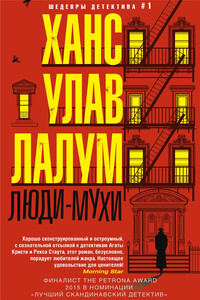
Убит бывший лидер норвежского Сопротивления и бывший член кабинета министров Харальд Олесен. Его тело обнаружено в запертой квартире, следов взлома нет, орудие убийства отсутствует. На звук выстрела к двери Олесена сбежались все соседи, но никого не увидели. Инспектор уголовного розыска Колбьёрн Кристиансен считает, что убийство, скорее всего, совершил кто-то из них. Более того, он полагает, что их показания лживы.
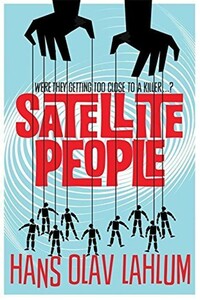
A gripping, evocative, and ingenious mystery which pays homage to Agatha Christie, Satellite People is the second Norwegian mystery in Hans Olav Lahlum's series. Oslo, 1969: When a wealthy man collapses and dies during a dinner party, Norwegian Police Inspector Kolbjorn Kristiansen, known as K2, is left shaken. For the victim, Magdalon Schelderup, a multimillionaire businessman and former resistance fighter, had contacted him only the day before, fearing for his life. It soon becomes clear that every one of Schelderup's 10 dinner guests is a suspect in the case.
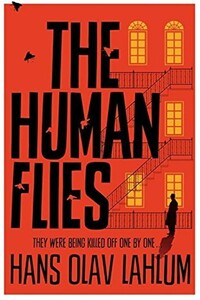
Oslo, 1968: ambitious young detective Inspector Kolbjorn Kristiansen is called to an apartment block, where a man has been found murdered. The victim, Harald Olesen, was a legendary hero of the Resistance during the Nazi occupation, and at first it is difficult to imagine who could have wanted him dead. But as Detective Inspector Kolbjorn Kristiansen (known as K2) begins to investigate, it seems clear that the murderer could only be one of Olesen's fellow tenants in the building. Soon, with the help of Patricia – a brilliant young woman confined to a wheelchair following a terrible accident – K2 will begin to untangle the web of lies surrounding Olesen's neighbors; each of whom, it seems, had their own reasons for wanting Olesen dead.
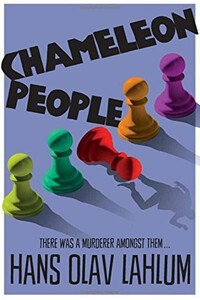
From the international bestselling author, Hans Olav Lahlum, comes Chameleon People, the fourth murder mystery in the K2 and Patricia series.1972. On a cold March morning the weekend peace is broken when a frantic young cyclist rings on Inspector Kolbjorn 'K2' Kristiansen's doorbell, desperate to speak to the detective.Compelled to help, K2 lets the boy inside, only to discover that he is being pursued by K2's colleagues in the Oslo police. A bloody knife is quickly found in the young man's pocket: a knife that matches the stab wounds of a politician murdered just a few streets away.The evidence seems clear-cut, and the arrest couldn't be easier.
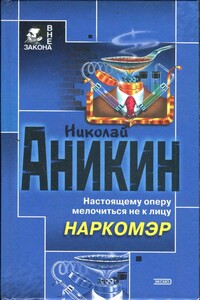
Тупик. Стена. Старый кирпич, обрывки паутины. А присмотреться — вроде следы вокруг. Может, отхожее место здесь, в глухом углу? Так нет, все чисто. Кто же сюда наведывается и зачем? И что охраняет тут охрана? Да вот эту стену и охраняет. Она, как выяснилось, с секретом: время от времени отъезжает в сторону. За ней цех. А в цеху производят под видом лекарства дурь. Полковник Кожемякин все это выведал. Но надо проникнуть внутрь и схватить за руку отравителей, наживающихся на здоровье собственного народа. А это будет потруднее…
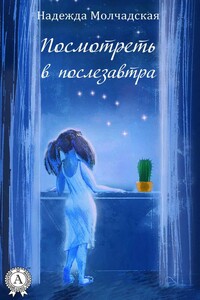
«Посмотреть в послезавтра» – остросюжетный роман-триллер Надежды Молчадской, главная изюминка которого – атмосфера таинственности и нарастающая интрига.Девушка по имени Венера впадает в кому при загадочных обстоятельствах. Спецслужбы переправляют ее из закрытого городка Нигдельск в Москву в спецклинику, где известный ученый пытается понять, что явилось причиной ее состояния. Его исследования приводят к неожиданным результатам: он обнаруживает, что их связывает тайна из его прошлого.
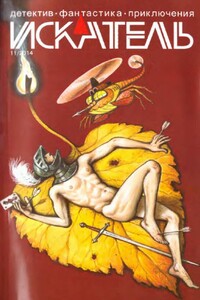
«ИСКАТЕЛЬ» — советский и российский литературный альманах. Издаётся с 1961 года. Публикует фантастические, приключенческие, детективные, военно-патриотические произведения, научно-популярные очерки и статьи. В 1961–1996 годах — литературное приложение к журналу «Вокруг света», с 1996 года — независимое издание.В 1961–1996 годах выходил шесть раз в год, в 1997–2002 годах — ежемесячно; с 2003 года выходит непериодически.Содержание:Анатолий Королев ПОЛИЦЕЙСКИЙ (повесть)Олег Быстров УКРАДИ МОЮ ЖИЗНЬ (окончание) (повесть)Владимир Лебедев ГОСТИ ИЗ НИОТКУДА.
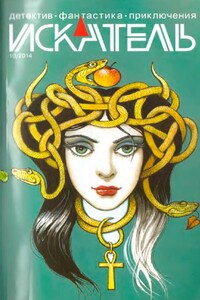
«ИСКАТЕЛЬ» — советский и российский литературный альманах. Издается с 1961 года. Публикует фантастические, приключенческие, детективные, военно-патриотические произведения, научно-популярные очерки и статьи. В 1961–1996 годах — литературное приложение к журналу «Вокруг света», с 1996 года — независимое издание.В 1961–1996 годах выходил шесть раз в год, в 1997–2002 годах — ежемесячно; с 2003 года выходит непериодически.Содержание:Олег Быстров УКРАДИ МОЮ ЖИЗНЬ (повесть);Петр Любестовский КЛЕТКА ДЛЯ НУТРИИ (повесть)
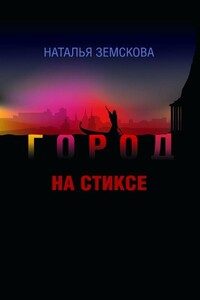
Наталья Земскова — журналист, театральный критик. В 2010 г. в издательстве «Астрель» (Санкт-Петербург) вышел её роман «Детородный возраст», который выдержал несколько переизданий. Остросюжетный роман «Город на Стиксе» — вторая книга писательницы. Молодая героиня, мечтает выйти замуж и уехать из забитого новостройками областного центра. Но вот у неё на глазах оживают тайны и легенды большого губернского города в центре России, судьбы талантливых людей, живущих рядом с нею. Роман «Город на Стиксе» — о выборе художника — провинция или столица? О том, чем рано или поздно приходится расплачиваться современному человеку, не верящему ни в Бога, ни в черта, а только в свой дар — за каждый неверный шаг.
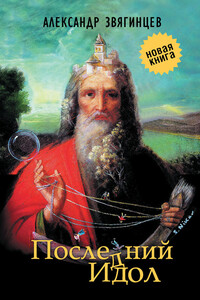
В сборник «Последний идол» вошли произведения Александра Звягинцева разных лет и разных жанров. Они объединены общей темой исторической памяти и личной ответственности человека в схватке со злом, которое порой предстает в самых неожиданных обличиях. Публикуются рассказы из циклов о делах следователей Багринцева и Северина, прокуроров Ольгина и Шип — уже известных читателям по сборнику Звягинцева «Кто-то из вас должен умереть!» (2012). Впервые увидит свет пьеса «Последний идол», а также цикл очерков писателя о событиях вокруг значительных фигур общественной и политической жизни России XIX–XX веков — от Петра Столыпина до Солженицына, от Александра Керенского до Льва Шейнина.